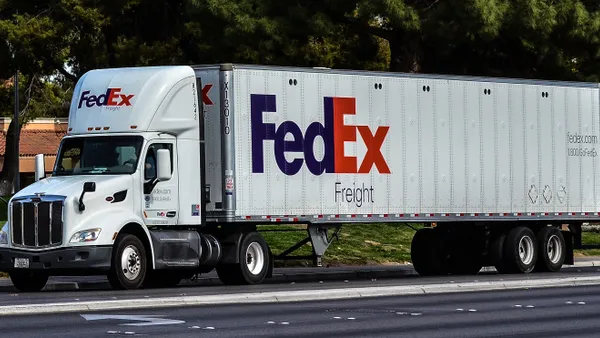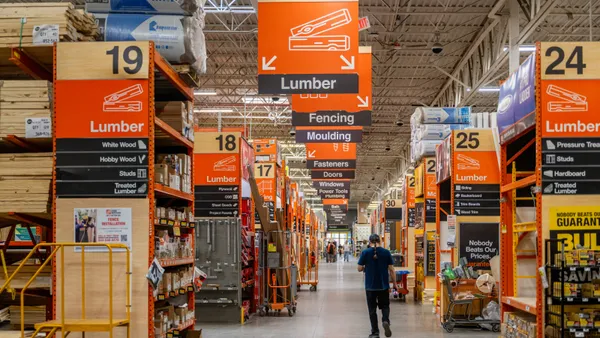Dive Brief:
- Data, supply chain accountability and safety were the main topics of conversation at an at-times contentious meeting of the Motor Safety Carrier Advisory Committee (MCSAC) at the Department of Transportation's offices in Washington, D.C., Monday.
- In the first of a two-day meeting, the committee met to advise the Federal Motor Carrier Safety Administration (FMCSA) on a new, five-year strategic plan, President Donald Trump's deregulatory executive order and the effects of driver detention time.
- For the strategic plan, MCSAC highlighted the need for improved data collection, sharing and consistency. The committee also signaled 12 outdated regulations for further review, largely dealing with old, burdensome paperwork requirements or misaligned regulations.
Dive Insight:
The official agenda of the event belied the tense environment — amidst stakeholders with a wide disparity of priorities — that befell a Department of Transportation as carriers, law enforcement, safety and driver representatives gathered to discuss how the FMCSA should approach its regulatory role. In a testament to the underlying inefficiencies in the trucking industry, the meeting largely coalesced around two main points: the industry needs better data to make informed decisions, and that shippers and receivers must also play a role to address the root causes of safety issues.
Greer Woodruff, Senior Vice President of Safety, Security and Driver Personnel at J.B. Hunt stated it best when, in a conversation on driver detention delays, he said, "We don't need more trucks and drivers, we need to use the ones we have efficiently."
In fact, driver detention encapsulates how, in the committee's view, the trucking industry is victim to competing pressures and extreme regulatory burdens.
Several studies cited during the meeting suggested a driver could spend anywhere between one and eight hours held up at a location. Often this is at weight checks. But just as often, the shippers are subjecting drivers to extended delays, due to space deficiencies or lack of preparation at the loading dock.
Driver James Benson, who had previously responded via email to Supply Chain Dive's spotlight on perfecting the last mile, wrote to us, "If these companies really want to get more efficient, ask them to start on their docks. Drivers burn many hours because we are tied up trying to get loaded or unloaded. The company, whether shipper or receiver, set the appointment time for us. The problem is they never keep the appointment time for us ... Please understand the ripple effect it has for us."
A driver shortage, high driver turnaround, hours of service restrictions, and long delays at ports, borders or weight checks are often cited as reasons for a trucking capacity crunch that limits the economy's growth.
With a Safety First mission, however, the FMCSA's new rules on speed limiters and electronic logging devices have come under fire for a lack of sufficient evidence to substantiate their benefits to the industry. The electronic logging device (ELD) mandate that just recently was set into stone, for example, had been struck down years ago for a lack of convincing data to support it. Similarly, the speed limiter proposed rule was seen as improper among all stakeholders.
Yet, today's a different time for the industry, and the committee argued a lack of data is no longer acceptable. The data is out there, in the trucking companies, State Transportation bureaus, and among law enforcement officials, but no good system exists to collect and share it all. This, in the long run, harms the regulatory review process.
Bringing all supply chain stakeholders to discuss these problems and priorities is essential. Shippers and receivers can remove the incentive to drive faster and tamper with log books by ensuring loading dock schedules are enforced. Carriers can reconsider their pay model to reward for hours worked, not miles driven. Regulators, law enforcement officials and port authorities can make the load inspection processes more efficient.
If each stakeholder does their part to remove systemic waste, all can win: shipments will arrive on time, road safety will increase, carriers will stop suffering a capacity crunch and drivers will be properly rewarded.
At least, that's the idea.














